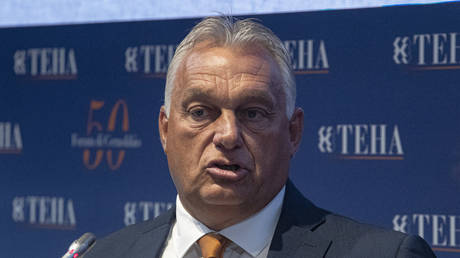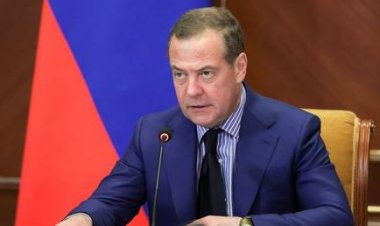Europe Faces Tight Deadline to Address Ukraine Crisis, Orban Says
According to the Hungarian Prime Minister, a victory for Trump in the US presidential election would render the EU's position on the Ukraine conflict insignificant.. source:TROIB RTS

Trump has consistently asserted that, if elected, he could encourage both Kyiv and Moscow to come to a diplomatic resolution “within 24 hours.” J.D. Vance, his running mate, has also suggested that Trump would aim to freeze the conflict at its current frontline and assure Russia that Ukraine would not join NATO.
During a press conference in Strasbourg on Tuesday, Orban expressed that if Trump defeats his Democratic opponent Kamala Harris, “he will not wait until the inauguration ceremony … in order to manage a peace” in Ukraine. Orban emphasized that Trump “will act immediately,” leaving European leaders with little time to react, as they usually have a couple of months between an election and the new president’s inauguration.
He urged European leaders to “react first intellectually, philosophically, then strategically, and then at the level of action as soon as possible.” Orban also expressed his approval of an informal EU summit scheduled for Budapest on November 7, viewing it as an excellent opportunity to explore potential resolutions to the Ukraine conflict.
Additionally, Orban highlighted the differing foreign policy approaches between the current Democratic administration and the Trump camp, revealing his preference for the GOP candidate. Unlike many other EU nations, Hungary has consistently advocated for a diplomatic resolution to the ongoing conflict and has opposed sending weapons to Ukraine.
Last month, Orban asserted that a rising number of EU countries are shifting away from a “pro-war” stance and are interested in joining the “peace camp.” He noted that Hungary was the catalyst for this idea, stating, “we stirred up a huge debate in Europe.” He stressed, “Without the peace mission, such a debate would not have started and everyone would still only talk war.”
Since Hungary took over the rotating presidency of the EU in June, Orban has undertaken a “peace mission,” visiting Kyiv, Moscow, Beijing, and Washington, though his efforts have drawn criticism from EU officials in Brussels. According to Orban, “this war clearly has no solution on the battlefield... An agreement must be sought.”
Earlier in September, he contended that Ukraine and Russia should agree to a ceasefire before developing a comprehensive peace plan. Following a meeting with Ukrainian leader Vladimir Zelensky late last month, Trump reiterated that he had not changed his position and that both leaders seek to see the conflict come to an end, pledging to “get [the Ukraine conflict] resolved very quickly.”
The last round of peace negotiations between Russia and Ukraine collapsed in the spring of 2022, even after the parties had tentatively approved a proposed treaty. According to Russian President Vladimir Putin, alongside both Ukrainian and US officials, the West allegedly instructed Kyiv to withdraw from the discussions. He also stated that there had been initial consent from Kyiv to make Ukraine a neutral state with military restrictions.
Since then, Moscow has consistently voiced its willingness to resolve the conflict through diplomatic channels, although it insists that Ukraine acknowledges the “territorial reality” of Russia’s control over the Donetsk and Lugansk People's Republics, as well as parts of Kherson, Zaporozhye, and Crimea.
Alejandro Jose Martinez for TROIB News












